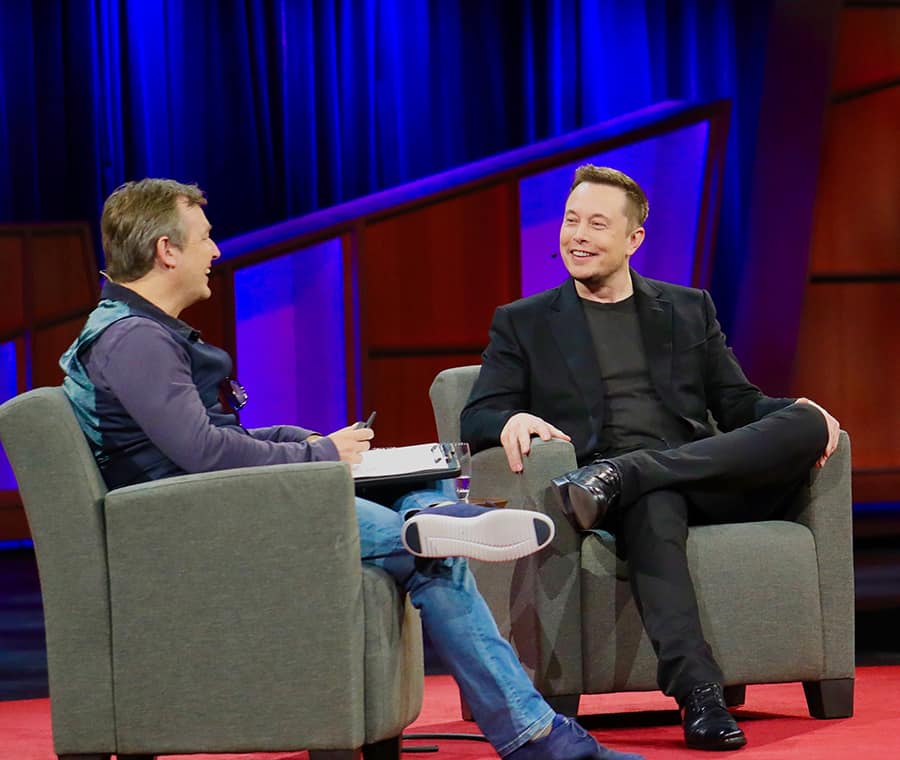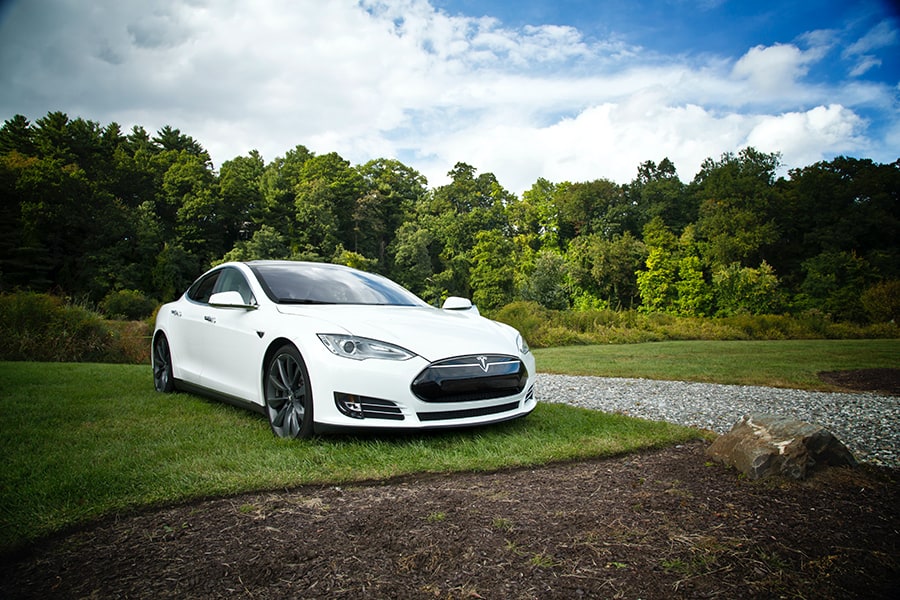A good engineering culture attracts top-notch engineers and increases productivity without burning them out.
Look no further than Elon Musk’s innovative companies, like SpaceX and Tesla, for shining examples of this. So, buckle up and let’s dive into the 15 super cool aspects of the engineering culture that Elon himself has masterfully crafted.
1. No asshole policy
It’s crucial to create an environment of respect, because without it, people get uneasy. You might be raking in a million-dollar salary and be the big cheese at your company, but if your boss constantly calls you “worthless” for no reason, you’ll feel terrible. As a result, your productivity will plummet, and you’ll be out the door in no time.
Similarly, a workplace should be free from judgment. Racial slurs or derogatory comments, even if said jokingly, have no place in a company. That’s why Elon Musk famously declared:
“We have a strict ‘no-assholes policy’ at SpaceX.”
Respect must be the bedrock of every engineering company, as bad behavior can spread like wildfire.
2. Engineers take center stage

In line with the first tip, a company must value and respect its engineers’ work. After all, in engineering-focused companies, the technical work is the star of the show. Just imagine a software company belittling its software engineers as ‘code monkeys.’ That’s just nuts!
What would our beloved Google be without software engineers? Absolutely nothing!
When companies undervalue technical work, engineer morale takes a hit. Engineers begin to question their worth and role in the company. That’s why Elon Musk champions the importance of engineers, stating:
“The path to the CEO’s office should not be through the CFO’s office, and it should not be through the marketing department. It needs to be through engineering and design.”
In short, when engineers speak, companies better pay attention.
3. Deeply connected teams
A team environment where engineers can comfortably work together is extremely powerful. Think about team sports; even a superstar athlete can’t win alone. Teams need players who feel they belong, and only then will they contribute.
Fostering teamwork while keeping morale high is no easy task. Companies should acknowledge entire engineering teams, not just individuals. After all, not everyone is a 10x engineer, but every engineer plays a part.
Moreover, higher-ups should immerse themselves in the daily grind. Elon Musk, when discussing his move to Texas, said:
“If you think about war…do you want the general in some like ivory tower or on the front lines? The troops are going to fight a lot harder if they see the general on the front lines.”
What’s more, team environments foster deep relationships, which in turn build trust. Next thing you know, you feel you belong to a special community, and there’s nowhere else you’d rather be.
4. Fearlessly asking questions

Approachability is crucial in the workplace. You’ve got to feel at ease asking questions, no matter how silly they may seem. After all, not everyone has the same skill set.
Take, for instance, when you’ve been stuck on a problem for over a week. To find a solution quickly, help from another engineer would be perfect. That’s why Elon Musk highlights the importance of working with awesome people, saying:
“It’s very important to like the people you work with, otherwise life [and] your job is gonna be quite miserable.”
As a young engineer, I’d constantly seek help from senior engineers. I had imposter syndrome and needed guidance. I remember other engineers setting aside their work to explain concepts to me. This meant the world to me and helped me avoid mistakes.
5. Library of learning resources
Easy-to-access learning resources help alleviate engineer anxiety without adding social pressure. Many engineers take pride in their work and are introverts, so they may not always ask for help.
For instance, Tesla has a learning program called ‘Tesla START.’ The program equips engineers to be productive at Tesla, allowing them to conquer the steep technical learning curve.
I wholeheartedly believe that learning resources are vital in companies, particularly in high-stress settings where each decision carries significant weight.
6. Cut the chitchat, let’s get to work
Endless, pointless meetings can make engineers lose their minds. Especially when more than half the attendees are just there to watch. I’ve sat through countless 2-hour meetings with over ten engineers, and only a few actually spoke. Ridiculous!
What’s crazier is that most hour-long meetings could be condensed into a few emails.
Equally frustrating are the political hoops in the workplace – when you have to complete five pointless tasks before tackling meaningful work. A solid engineering culture should promote real work instead. Elon Musk is a firm believer in productivity, stating:
“Are CEOs from corporate America focused enough on product improvement? I think the answer is no.”
Musk also stated, “I just honestly would recommend to anyone listening…just spend less time in meeting[s], less time on PowerPoint presentations, less time on spreadsheets and more time on the factory floor or time with customers.”
7. Equal opportunity for advancement
Everyone deserves an equal shot at climbing the company ladder. If you excel at your job, there’s no reason for outdated promotion requirements to hold you back.
Take the example of needing to work at a company for two years before any promotion. Elon Musk believes that if you’re good at what you do, you should be paid accordingly, saying:
“You get paid in direct proportion to the difficulty of problems you solve.”
What’s more, companies should clarify career paths for their employees. This way, there’s no guesswork, and anxiety stays at bay.
8. Challenges create learning opportunities
Environments that constantly encourage engineers to learn are powerful. Most engineers want to keep learning, so challenges can be highly addictive.
One major reason engineers switch jobs is that they stop learning, stuck doing the same repetitive tasks. But if companies offer extra learning opportunities, they can retain more engineers. And it starts with pushing engineers to never settle. Elon Musk said:
“Constantly think about how you could be doing things better and questioning yourself.”
9. The lifeblood of engineers is intellectual stimulation
Once you feel unmotivated, your mind starts wandering, and soon you’re eyeing the exit for a new job.
I believe nearly all engineers crave some degree of mental stimulation. Who wouldn’t want to work on world-changing projects?!
Unsurprisingly, Elon Musk advocates tackling ambitious challenges head-on, stating:
“When something is important enough, you do it even if the odds are not in your favor.”
It’s crucial for a company to discover what motivates its engineers and follow up with regular check-ins to address concerns.
10. Ownership of work
You know what really tightens the bond between an engineer and their company? Crystal clear transparency. Yeah, that’s right! Let’s lay all the cards on the table:
- The full work scope
- Budget
- Customer concerns and questions
This kind of openness gives engineers a sense of ownership. Even Elon Musk agrees, saying:
“People work better when they know what the goal is and why. It is important that people look forward to coming to work in the morning and enjoy working.”
Sure, some engineers couldn’t care less about a company’s mission. They just want to breeze through their 9 to 5 and cash in. No biggie!
But when it comes to reeling in those top-notch talents, transparency is the real deal. The cream of the crop has options that go way beyond money. They want to feel like their work is stitched right into the company’s heart.
11. High-quality work is contagious
A wise senior engineer once told me:
“If you have endless opportunities to fix a problem, then why not do it right the first go-around?”
Creating a work environment that encourages top-notch work benefits everyone. ‘Cause if an engineer slacks off, the whole team takes a hit. Elon Musk chimes in with:
“You shouldn’t do things differently just because they’re different. They need to be… better.”
What’s more, poor-quality work is a one-way street to losing millions of dollars. Even worse, people can get hurt and lose their lives because of negligence. But let’s get one thing straight: high-quality work isn’t fueled by bonuses or promotions. Nope, it’s ingrained in a company’s culture, where nobody wants to be the weak link. That’s what a rockin’ engineering culture looks like.
12. Business politics are kryptonite

I can’t stand workplace politics! Those imaginary walls just slow everything down to a snail’s pace.
Fewer barriers in the workplace equal happier engineers. Who wants to ask for permission from half a dozen people just to do a basic task? It’s a total buzzkill. Plus, it wastes endless time and robs engineers of their creative freedom.
That’s why Tesla cuts the bureaucracy. Sure, it’s a major auto company, but it operates like a lean, hungry, tech start-up. And guess what? Engineering leads the way in decision-making. Elon Musk puts it like this:
“I don’t spend my time pontificating about high-concept things; I spend my time solving engineering and manufacturing problems.”
13. Embrace Risk-Taking, Ditch the CYA Mentality
You know what really grinds my gears? When creative doors are slammed shut on engineers. It’s like telling a basketball player they can only dribble one way. Talk about a lot of ticked-off players and a downright lousy game!
As a trailblazer in your industry, creativity is crucial. Management should not only encourage it but also fire up their engineers. Show ’em the incredible things they can achieve in a world without limits. Elon Musk hit the nail on the head when he said:
“There’s a tremendous bias against taking risks. Everyone is trying to optimize their ass-covering.”
Let your engineers go wild with their ideas, no matter how outlandish—well, as long as the budget allows.
Take Netflix, for example. They let their engineers flex their creative muscles without any bureaucratic nonsense. In fact, they urge them to own their creations because, let’s face it, personal ownership leads to top-notch work.
14. A mission that pulls you in like a magnet

I’m talkin’ about a mission that gets right to your core, one that’s crystal clear and deeply rooted. A powerful mission like this gives engineers a purpose beyond just cashing a paycheck.
And you know what? Engineers will work their tails off, clocking in long hours because they genuinely believe their work is making a difference. Check out what Elon Musk had to say about SpaceX:
“You want to wake up in the morning and think the future is going to be great – and that’s what being a spacefaring civilization is all about. It’s about believing in the future and thinking that the future will be better than the past. And I can’t think of anything more exciting than going out there and being among the stars.”
How wickedly cool and inspiring is that? Turning humans into a multi-planetary species will be the most mind-blowing and transformative event in our history.
15. Facts and logic rule, no exceptions
Nobody should be untouchable when it comes to questioning. Even if it’s an intern busting a Chief Engineer’s chops over a technical goof. We’re all human, and let’s face it, humans make mistakes.
A healthy work environment revolves around improving products, not stroking egos. Open debates should be the norm. Elon Musk had some heavy thoughts on this:
“Anyone at Tesla can and should email/talk to anyone else according to what they think is the fastest way to solve a problem for the benefit of the whole company. You can talk to your manager’s manager without his permission, you can talk directly to a VP in another dept, you can talk to me, you can talk to anyone without anyone else’s permission. Moreover, you should consider yourself obligated to do so until the right thing happens.”
“What makes a good engineering culture” wrap up
These 15 Elon-inspired culture traits meld together to forge the perfect work environment. And it’s crucial to remember that leadership shapes company culture, empowering both the organization and its team members to thrive.
What do you think makes a good engineering culture? How important do you find a good engineering culture to be?
Featured Image Photo Credit: Priscilla Du Preez (image cropped)
